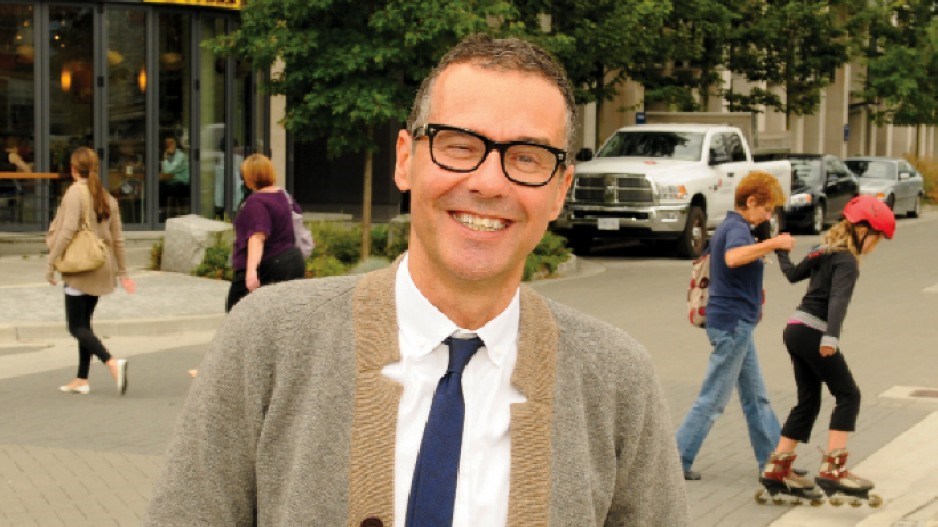Condominium sales at the former Olympic Village have been stronger than expected and all retail space is leased in what is fast becoming Vancouver’s hippest new neighbourhood, the Village on False Creek.
London Drugs opened a 17,000-square-foot store last week, two months after Urban Fare opened a 24,000-square-foot supermarket. The rest of the 77,000 square feet of retail space in the Village includes:
•the Daniel Group’s 12,000-square-foot Tap and Barrel pub;
•Granville Entertainment Group’s 8,000-square-foot Legacy Liquor store; and
•a Terra Breads café, TD Canada Trust bank and a Village Cleaners dry cleaner.
“This is a smaller store for us,” London Drugs president Wynne Powell told Business in Vancouver. “Most of our younger stores are about 34,000 square feet, or twice this size.”
The city is expected to announce who will operate a 13,000-square-foot pub in the refurbished historic Salt Building later this month.
“Terra Breads’ opening was a real game-changer,” Rennie Marketing Systems owner and marketer Bob Rennie told BIV August 27.
“Once I had the litter of paper cups in the plaza, it would show that there were people there. I needed that. Buyers needed to see that.”
He said that 562 of the 737 residential strata units have been sold, which leaves 175 units still for sale.
Steady condominium sales have helped reduce the city’s debt from an emergency $750 million loan to save developer Millennium Development in 2008.
“Sales are ahead of schedule,” Rennie said.
“I didn’t think [in early 2011] that I would bring Canada House to market until September of this year. We have now sold 47 of the 60 Canada House units.”
The Canada House units range in price from $1.2 million up to $7 million and housed Canadian athletes at the Vancouver 2010 Olympics.
The city had reduced its Olympic Village debt to $462 million by the end of 2011.
Condominium sales in the first five-and-a-half months of 2012 helped it knock another $114 million off that figure, pushing total debt down to $348 million, according to a June report from receiver Ernst and Young.
Rennie said his company has sold 44 more condominiums since the receiver’s report and that most of those sales were for condominiums valued at less than $1 million.
But realtor, legal, receiver and other costs come off the top before the city can chip away at debt. Judging from past expenses that the receiver noted in its June report, the city will likely receive less than 75% of condominium sales revenue to pay off debt.
That means recent sales are likely to have helped the city cut its debt to $323 million.
Future condominium sales are likely to knock at least another $100 million off that debt.
That leaves the 32 separate properties in Burnaby, North Vancouver, Vancouver, West Vancouver and Toronto, which combine to have a net value of $45 million, that the city also obtained as a result of assuming its loan to Millennium.
Selling those assets could reduce the city’s Village-related debt to below $200 million.
Critics of Rennie’s real-estate marketing strategy, such as Michael Geller and Associates consultant Michael Geller, have urged the city to drop prices to speed sales and avoid being affected by an anticipated slowdown in the local real estate market.
But that proposal has no support at city hall.
“You have to be careful that you don’t flood the market, especially when the asset is owned by a government and the action will have an impact on the private sector,” said city councillor George Affleck.
“You have to respect the market.”
Rennie similarly said much thought has gone into how units are priced.
He said appraisers at Altus Group Canada, Burgess, Cawley Sullivan & Associates and Urban Analytics meet weekly with Ernst and Young representatives and Rennie to ensure that prices are at an appropriate level.
Recent sales have been at the same prices that were asked in March, he said.
“Standing inventory doesn’t sell like a presale,” Rennie said.
“Passive investors, such as mum and dads who want to buy a condo for their kids, buy [a pre-sale] hoping that values will be stronger in the future and that their money is better off as a deposit on real estate than in the bank.
“When a building is finished, I’m only selling to homeowners, and you can’t find 737 homeowners in a day.”




